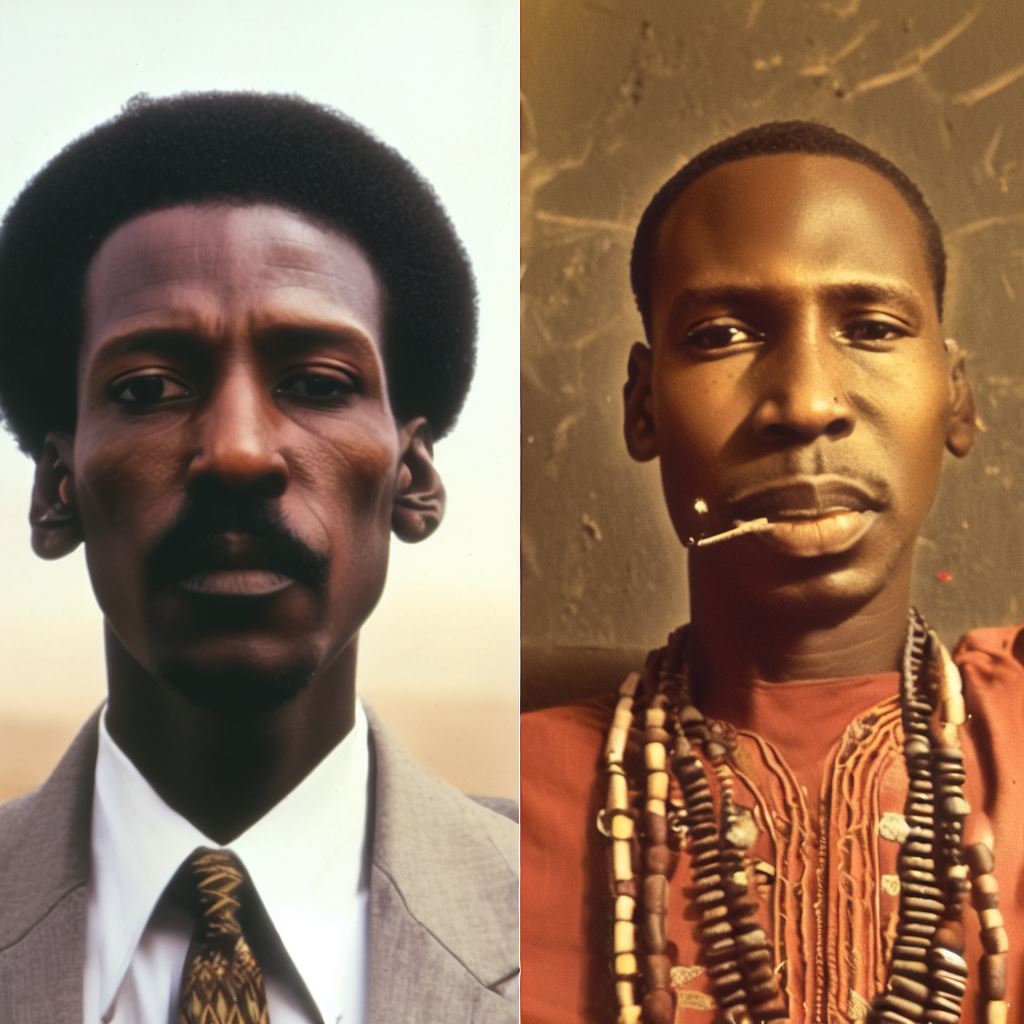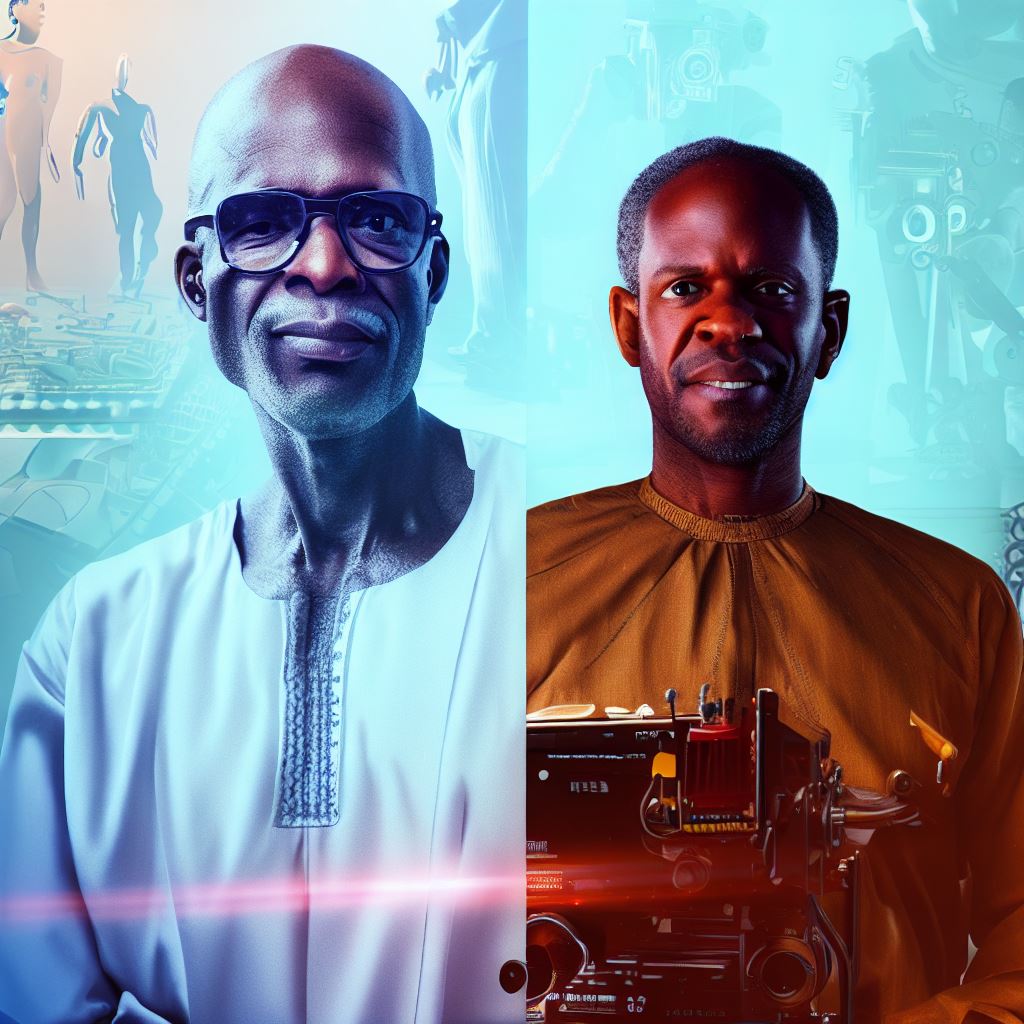Introduction
Let’s explore historical evolution of film music in Nigeria.
Film music refers to the musical compositions and arrangements created specifically for use in films.
It plays a vital role in enhancing the storytelling process by creating emotions and adding depth.
Film music contributes to the overall cinematic experience and aids in creating a lasting impact on the audience.
It helps in setting the tone and mood of a scene, highlighting important moments, and building suspense.
Film music also helps in establishing the time period, culture, and location of the story being told.
It adds a layer of complexity and richness to the visuals, effectively conveying the intended message.
The importance of film music in the storytelling process cannot be overstated, as it has the power to evoke emotions and enhance the narrative.
Through the use of melodies, harmonies, and instrumental arrangements, film music immerses the viewers in the story.
It enhances the character development, intensifies action sequences, and creates a sense of anticipation.
Film music has evolved significantly in Nigeria, reflecting the cultural diversity and historical context of the country.
Nigerian film composers have embraced various styles, incorporating traditional Nigerian music, Western classical elements, and popular genres.
The evolution of film music in Nigeria has helped shape the identity of Nigerian cinema, enhancing its global recognition.
With the advancement of technology and access to resources, Nigerian film music continues to evolve, showcasing the creativity and talent of local composers.
Early Roots of Film Music in Nigeria
Influence of traditional Nigerian music on early film soundtracks
Traditional Nigerian music heavily influenced the early film soundtracks in Nigeria.
Vibrant rhythms, melodic patterns, and unique instruments were incorporated into the music.
This fusion created a distinctive sound that represented the rich cultural heritage of Nigeria.
Role of live musicians in accompanying silent films
Live musicians played a crucial role in enhancing the cinematic experience during silent films.
They improvised music in sync with the action on the screen, heightening emotional impact.
These musicians played various instruments such as drums, flutes, and strings to accompany the films.
Introduction of sound in Nigerian cinema and its impact on film music
The introduction of sound in Nigerian cinema revolutionized the film music industry.
It allowed for the incorporation of dialogue, sound effects, and synchronized music.
This shift led to the emergence of new opportunities for composers and musicians in Nigeria.
The Evolution of Film Music in Nigeria
Transition from live musicians to recorded soundtracks
With the advancement of technology, recorded soundtracks gradually replaced live musicians.
Composers started creating original scores specifically tailored to each film.
This transition provided a more consistent and controlled sound quality for the audience.
Influence of Western music on Nigerian film soundtracks
As the influence of Western culture grew, Nigerian film soundtracks began incorporating Western elements.
Western musical genres like jazz, ballads, and orchestral arrangements influenced Nigerian compositions.
This fusion of Nigerian and Western music created a unique style that appealed to a broader audience.
The rise of popular music in Nigerian films
Nigerian films started including popular songs to attract a larger fan base.
Hit songs by popular Nigerian musicians became an essential part of the film industry.
This integration of popular music added a commercial element to Nigerian film soundtracks.
The impact of globalization on Nigerian film music
Globalization opened doors for collaborations between Nigerian composers and international artists.
Nigerian film soundtracks gained recognition on a global scale, leading to increased exposure and opportunities.
This exchange of musical ideas enriched the Nigerian film music industry, creating a diverse and vibrant landscape.
The future of film music in Nigeria
With the rapid growth of the Nigerian film industry, the future of film music is promising.
More composers and musicians are emerging, bringing fresh perspectives and innovative sounds.
Nigerian film soundtracks will continue to evolve, reflecting the ever-changing cultural and musical landscape.
In short, the historical evolution of film music in Nigeria showcases the influence of traditional Nigerian music, the role of live musicians, and the impact of technological advancements.
The fusion of Nigerian and Western music, the rise of popular songs, and the influence of globalization have shaped the unique sound of Nigerian film soundtracks.
With a promising future ahead, Nigerian film music will continue to captivate audiences and contribute to the vibrant Nigerian film industry.
Read: The Crossroads of Nigerian Cinema and Music
Golden Age of Nigerian Film Music
In the Golden Age of Nigerian Film Music, notable composers and musicians emerged in the 1960s and 1970s.
Incorporation of Western musical styles and instruments in film soundtracks
Western musical styles and instruments were incorporated into film soundtracks during this period.
The incorporation of these styles and instruments brought a new dimension to Nigerian film music.
Filmmakers began to use music to represent the cultural diversity and national identity of Nigeria.
The use of traditional Nigerian instruments and melodies became more prominent in film soundtracks.
This helped to create a unique and distinct sound for Nigerian film music.
Composers and musicians such as Fela Kuti and Sikiru Adepoju played a major role in shaping the sound of Nigerian film music during this time.
Their innovative use of music and instruments helped to elevate Nigerian film music to new heights.
Nigerian film music of the Golden Age also incorporated elements of Afrobeat and Highlife music.
These genres, which originated in Nigeria, became an integral part of film soundtracks in the 1960s and 1970s.
They added a sense of rhythm and energy to the films, enhancing the storytelling experience.
Furthermore, the use of Western musical styles and instruments in Nigerian film music helped to attract a wider audience.
By blending traditional Nigerian music with Western influences, Nigerian filmmakers were able to appeal to both local and international audiences.
The incorporation of Western musical styles and instruments also helped to modernize Nigerian film music.
It brought a new level of sophistication and professionalism to the industry.
Nigerian composers and musicians began to experiment with different soundscapes and genres.
They pushed the boundaries of traditional film music and created a distinct Nigerian sound.
Cultural representation and national identity through film music
In addition, the cultural representation and national identity through film music became more prominent during the Golden Age.
Music was used to capture the essence of Nigeria’s diverse cultures and showcase them on a global stage.
Through film music, Nigerian filmmakers were able to celebrate their heritage and showcase the richness of their cultural traditions.
Overall, the Golden Age of Nigerian Film Music marked a significant period of growth and innovation.
Notable composers and musicians emerged, bringing a unique sound to Nigerian film music.
With the incorporation of Western musical styles and instruments, Nigerian filmmakers were able to appeal to a wider audience.
Furthermore, the cultural representation and national identity through film music became more prominent.
The Golden Age of Nigerian Film Music was a turning point for the industry, paving the way for future generations of composers and musicians to make their mark.
Read: Guide to Licensing for Film Composers in Nigeria

See Related Content: Defining the Role of a Circus Performer in Nigeria Today
Explore Further: Examining the State of Digital Writing in Nigeria
Decline and Resurgence of Nigerian Film Music
Impact of political instability on the film industry in the 1980s and 1990s
During the 1980s and 1990s, Nigeria witnessed significant political instability, which had a profound impact on the film industry and subsequently on film music.
The music scene in Nigeria suffered greatly during this period.
Dominance of imported music and decline in original Nigerian film scores
Imported music began dominating the Nigerian film industry.
Audiences were more inclined towards foreign sounds, and filmmakers started using popular imported songs as film scores, neglecting the importance of creating original Nigerian film music.
This decline in the creation of original Nigerian film scores had far-reaching effects.
The unique cultural essence that could have been captured through music was lost. It contributed to a loss of identity in Nigerian films, making them less relatable to the local audience.
Additionally, the reliance on imported music affected the economic opportunities for Nigerian musicians and composers.
With the absence of original Nigerian film scores, local musicians and composers were deprived of a platform to showcase their talent and earn a living.
Recent revival of Nigerian film music with the rise of Nollywood
However, in recent years, there has been a remarkable revival of Nigerian film music, with the rise of Nollywood – the Nigerian film industry.
Nollywood has become the second-largest film industry in the world, and its growth has created new opportunities for film music.
The resurgence of Nigerian film music can be attributed to several factors.
Firstly, the increase in local film production allows for more original scores to be created.
Filmmakers have recognized the importance of incorporating Nigerian sounds and cultural elements into their movies.
Furthermore, there has been a shift in audience preferences. Nigerian audiences are now more inclined to support and appreciate local talent.
This change in attitude has encouraged filmmakers to prioritize original Nigerian film music, enhancing the cultural experience and creating a deeper connection with the audience.
The revival of Nigerian film music has also created a platform for emerging artists and composers.
The demand for original scores has led to the discovery of fresh talent, fostering the growth of the local music industry.
Moreover, the Nigerian government has recognized the potential of the film industry as a catalyst for economic development.
Publish Your Professional Profile, Business or Brand
Showcase your expertise, gain trust, and boost visibility instantly on Professions.ng.
Publish NowVarious initiatives and policies have been implemented to support the growth of Nollywood and encourage the creation of original Nigerian film music.
In fact, political instability in the 1980s and 1990s had a detrimental effect on the Nigerian film music industry.
Imported music dominated, and the creation of original Nigerian film scores declined.
However, with the rise of Nollywood and a shift in audience preferences, there has been a resurrection of Nigerian film music.
The industry has regained its cultural essence, created economic opportunities, and provided a platform for emerging talent, leading to a vibrant resurgence of Nigerian film music.
Read: Pioneering Female Film Composers in Nigeria
Find Out More: Nigeria’s Foley Artists: Breaking Down Sound Barrier in Movies
Contemporary Nigerian Film Music
Evolution of film music styles in Nollywood films
The evolution of film music styles in Nollywood films has been a significant aspect of the Nigerian film industry.
Nigerian filmmakers have successfully collaborated with popular Nigerian musicians, leading to the success and recognition of Nigerian film music on international platforms.
The emergence of Nollywood in the 1990s marked a turning point for the Nigerian film industry.
Films started incorporating indigenous music, reflecting the rich cultural heritage of Nigeria.
Traditional Nigerian music genres like Juju, Highlife, Fuji, and Afrobeat became prominent in film soundtracks.
These music styles not only enhanced the storytelling but also resonated with the Nigerian audience.
Filmmakers realized the potential of music in creating emotional connections and capturing the essence of their stories.
Collaboration between filmmakers and popular Nigerian musicians
As Nollywood gained popularity, filmmakers started collaborating with popular Nigerian musicians to create original soundtracks.
This collaboration brought a fresh and contemporary touch to Nigerian film music.
Musicians like King Sunny Ade, Fela Kuti, Ebenezer Obey, and Sir Shina Peters contributed their unique styles to film soundtracks.
Their involvement legitimized the importance of music in Nollywood films and helped elevate the industry.
As the Nigerian music industry continued to grow, more artists began venturing into film music.
This resulted in a range of genres being explored, including Afro-pop, hip-hop, and R&B.
The infusion of these modern music styles added a new dimension to Nigerian film music.
Nigerian filmmakers embraced this evolution, recognizing the power of music in attracting both local and international audiences.
The success of Nigerian film music was not limited to domestic viewership.
Nigerian films and their soundtracks gained recognition at various international film festivals.
The use of popular Nigerian music in films played a crucial role in this achievement.
It helped bridge the gap between Nigerian culture and the global film industry.
Nigerian films, accompanied by their vibrant soundtracks, became a platform to showcase Nigerian music talent.
This recognition paved the way for Nigerian musicians to collaborate with international artists.
Collaborations with artists like Beyoncé, Drake, and Jay-Z brought further exposure to Nigerian music on a global scale.
Nigerian film music has also made its mark in award ceremonies, with soundtracks receiving nominations and wins.
Success and recognition of Nigerian film music on international platforms
The recognition of Nigerian film music on international platforms has turned it into a vibrant industry of its own.
Musicians are now actively involved in crafting film soundtracks, and composers have gained prominence.
The future of Nigerian film music looks promising, with continuous innovation and exploration of diverse genres.
The evolution of film music in Nigeria showcases the country’s vibrant cultural tapestry and its influence on the global music scene.
In essence, the evolution of film music in Nigeria, particularly in Nollywood films, has been a remarkable journey.
The collaboration between filmmakers and popular Nigerian musicians, along with the recognition of Nigerian film music on international platforms, has elevated the status of Nigerian music both locally and globally.
With continuous innovation, Nigerian film music is poised for a bright future, captivating audiences with its rich and diverse soundscape.
Read: The Changing Trends in Nigerian Film Music
Conclusion
The historical evolution of film music in Nigeria showcases its growth and development.
Nigerian film music has become significant in the global cinema landscape, attracting international recognition.
The future prospects of Nigerian film music look promising, with potential for further growth and innovation.
Throughout the years, Nigerian film music has made a lasting impact and is poised to continue flourishing in the future.




